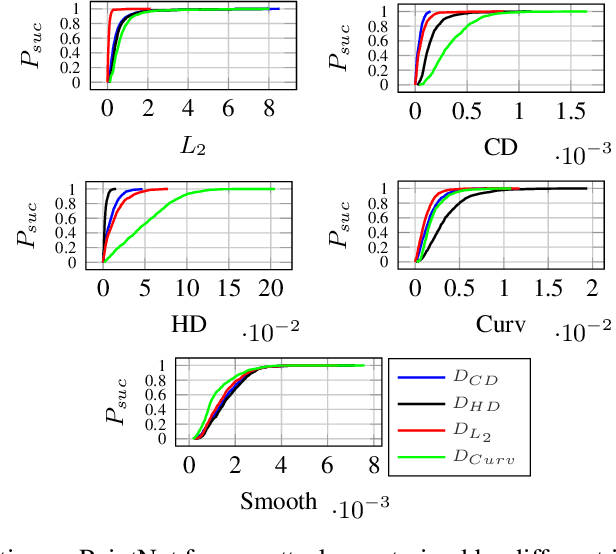Eidos: Efficient, Imperceptible Adversarial 3D Point Clouds
Paper and Code
May 23, 2024



Classification of 3D point clouds is a challenging machine learning (ML) task with important real-world applications in a spectrum from autonomous driving and robot-assisted surgery to earth observation from low orbit. As with other ML tasks, classification models are notoriously brittle in the presence of adversarial attacks. These are rooted in imperceptible changes to inputs with the effect that a seemingly well-trained model ends up misclassifying the input. This paper adds to the understanding of adversarial attacks by presenting Eidos, a framework providing Efficient Imperceptible aDversarial attacks on 3D pOint cloudS. Eidos supports a diverse set of imperceptibility metrics. It employs an iterative, two-step procedure to identify optimal adversarial examples, thereby enabling a runtime-imperceptibility trade-off. We provide empirical evidence relative to several popular 3D point cloud classification models and several established 3D attack methods, showing Eidos' superiority with respect to efficiency as well as imperceptibility.
 Add to Chrome
Add to Chrome Add to Firefox
Add to Firefox Add to Edge
Add to Edge